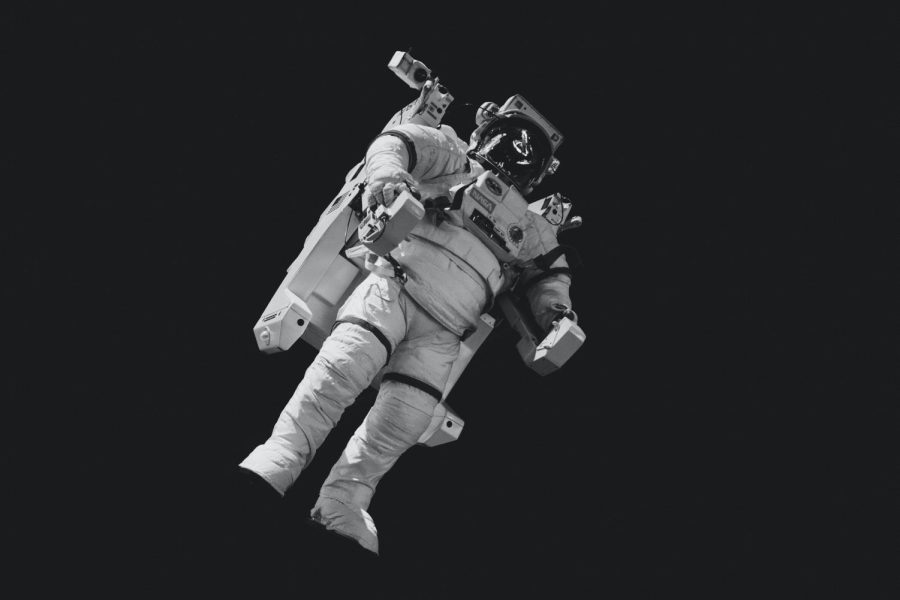The Space of Our Dreams
February 22, 2023
With the brilliant, mesmerizing hope of a shooting star, the space race blasted off. Daring dreams of colonizing exotic planets took root in the collective consciousness of the 20th century. Science fiction books exploded in popularity as science fiction shows skyrocketed. Behind the politics of the Cold War lay the optimism of a child with their eyes set on the stars. For one blazing moment, humanity shared one dream.
Then we landed on solid ground; one small step for man, one giant leap for mankind, but no second step, no second leap, at least not in the collective consciousness. We faltered. The gravity of the moon was relatively light, but our feet were stuck fast to the grey rock beneath. What happened?
Nothing happened. Space remains the same mass of spinning galaxies and burning stars as it did before. Black holes, pulsars, and filament clouds still dot the heavens above. The constellations play their roles as they have for centuries, but we are lost in the emptiness between.
There is a space in our dreams. The Moon was the first step, Mars was to be the second, but there, in the gap between, we fell. Neil Armstrong was the symbol of our hope in the 20th century, but in the 21st century, we are left with corrupt billionaires with too much time on their hands. We are not collectively going to be space explorers, a couple of the uber rich will be space “tourists.” We will be left behind in the space between.
Adam McKay’s film “Don’t Look Up” shows this quite succinctly. When a comet decimates the Earth, a handful of wealthy elites escape alone on their spaceships, leaving the rest of humanity stuck to the ground. The dream becomes someone else’s. Even more terrifyingly real is the campaign to have “space billboards.” Again, capitalism reaches the stars quicker than we do.
It seems funny, almost. A bunch of old white men with just enough corporations to know they are compensating for something, fighting to see who can advertise McDonalds in outer space first. It would be funny if it was not so depressing. We are floating in emptiness, and the stars seem so far away.
The Stupendium’s song “The Fine Print” illustrates this disillusionment with the space race in the 21st century as they sing about indentured servitude in space where, “you’ll be grateful for seats at the table, though it dips at one end and the bench is unstable.” They question the audience, “what were you expecting?” And honestly, at this point, indentured servitude sounds about right.
It hurts to lie in our shattered dreams of stardust, watching the 1% taking off towards the ends of the universe, but maybe it is time to pick ourselves up again. Maybe it is time to rebuild the Space of our dreams. There might be something to the de-privatization of space travel. Afterall, it is hard to stare up into that midnight sky and feel hopeless. The galaxies glitter and the stars sparkle too much for that.
Kira Symington is a Dakota Student General Reporter. She can be reached at kira.symington@und.edu.


